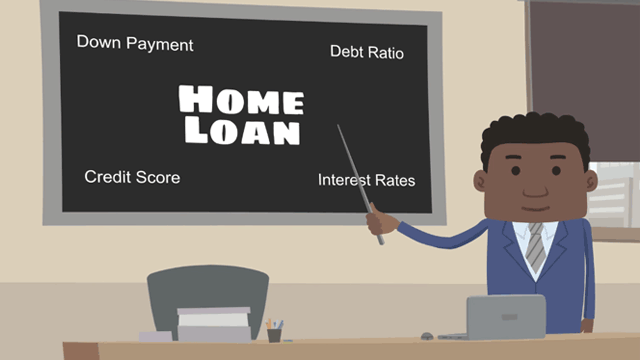FHA Home Loan Interest Rate Factors
March 24, 2025
Who determines the interest rates for FHA loans?
The Federal Housing Administration (FHA) insures FHA loans, but does not set or regulate FHA loan interest rates.
Instead, banks, credit unions, and mortgage companies determine the interest rates offered to borrowers. FHA loan guidelines and lender standards both play a role in loan approval.
What influences FHA loan interest rates?
FICO scores can influence the mortgage rate the lender offers. Higher scores typically result in lower rates, but other factors must also be considered.
A higher loan-to-value ratio can lead to higher rates. You can adjust that value with a higher downpayment. Your debt-to-income (DTI) ratio also matters. A lower DTI ratio generally helps the lender offer you a lower rate.
Shorter FHA loan terms often have lower interest rates. You could save more on a 15-year mortgage than on a 30-year note.
What non-financial factors can influence FHA loan interest rates?
Beyond financial considerations, non-financial factors also contribute to interest rate determination. Inflation and Federal Reserve policies impact rates, and each lender's internal policies and risk tolerance influence rates, too.
Property location, including local market conditions and property values, can affect rates. Whether it’s a purchase or refinance, the rate offered can also influence it. Even within the FHA program, certain loan types can influence rates.
How do fixed-rate and adjustable-rate mortgages differ?
Fixed-rate mortgages keep the same interest rate throughout the loan's term, allowing for stable monthly payments.FHA adjustable-rate mortgages (ARMs) have interest that fluctuates based on a predetermined index.
How can I get the best possible FHA loan rate?
Improve your credit score. Take steps to your DTI ratio, this is also very important. A larger down payment can help. Shop around. Compare loan rates from multiple lenders. Understand the implications of points and fees.
What are Mortgage Insurance Premiums?
Mortgage Insurance Premiums protect the lender against default. This includes a one-time fee paid at closing and the annual FHA Mortgage Insurance Premium, which is added to your mortgage payments for the year, split over 12 installments.
Can I refinance my FHA loan, and what are the options?
Options include the FHA streamline refinance, a rate and term refinance to change interest rates and loan terms, and FHA cash-out refinances to access home equity.
How does my credit score specifically influence the interest rate I'm offered?
Higher scores indicate lower risk, leading to better rates. Even with lenient FHA standards, a higher score can improve your offered rate.
Besides interest rate, what other costs should I consider when evaluating an FHA loan?
Beyond the interest rate, you should consider mortgage insurance premiums (MIP), closing costs, including origination fees and appraisal fees, property taxes and homeowners insurance, and any potential HOA fees.

FHA Loan Articles
February 6, 2021As an existing homeowner, you may want to take advantage of falling interest rates by refinancing your current mortgage. For many homeowners, the thought of going through the refinancing process can be tiresome. But an FHA Streamline Refinance could help you avoid the extra work.
January 30, 2021As your closing day gets closer and closer, you might start to feel a little nervous. Do you have everything you need? Will something delay the closing? These worries are natural, but the more prepared you are, the less overwhelming it will all seem.
January 16, 2021What you may not know that there are many different types of refinances and different benefits that come with them. The cash-out refinance, or cash-out refi, is one that many borrowers opt for, for several reasons.







